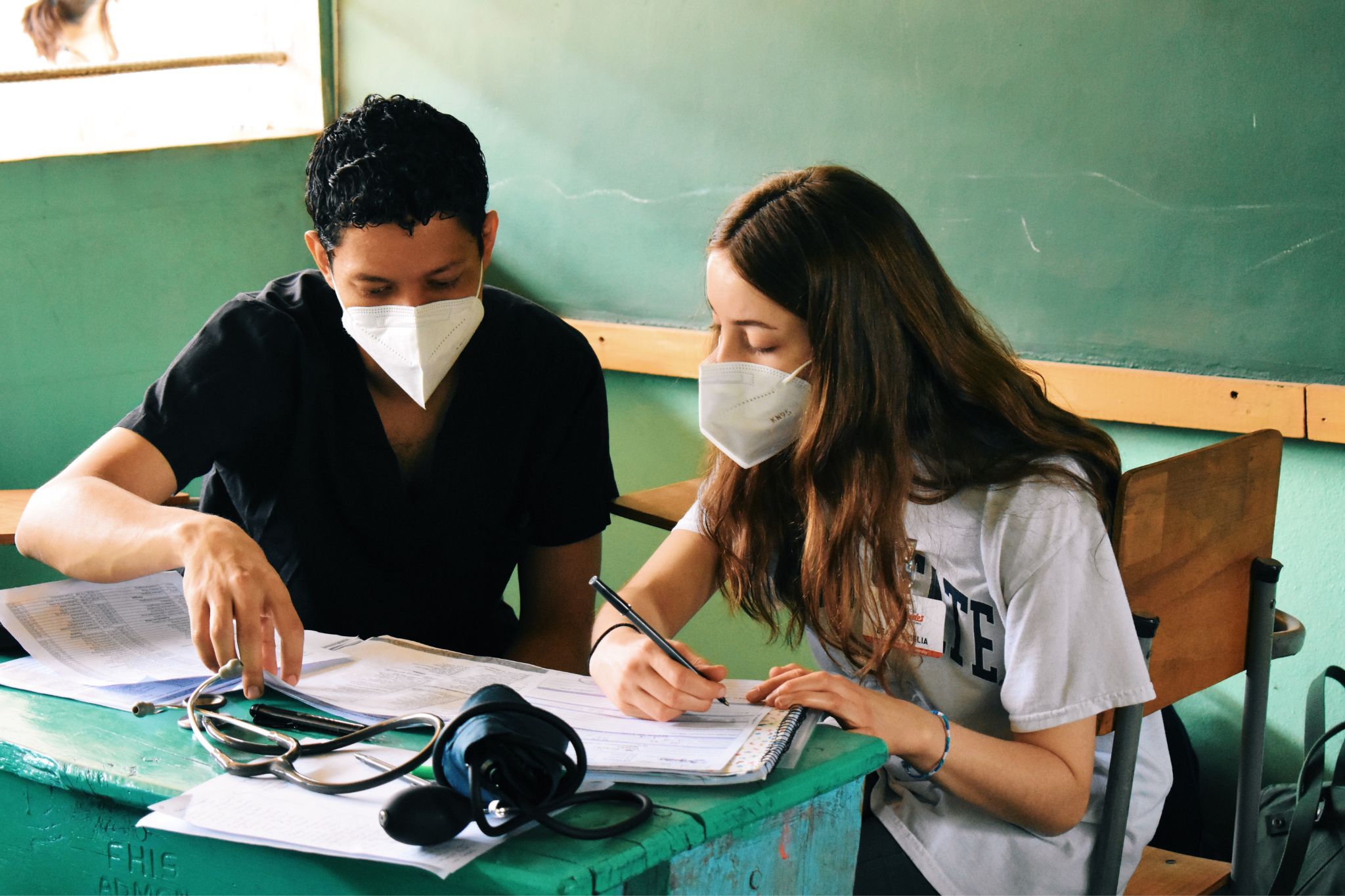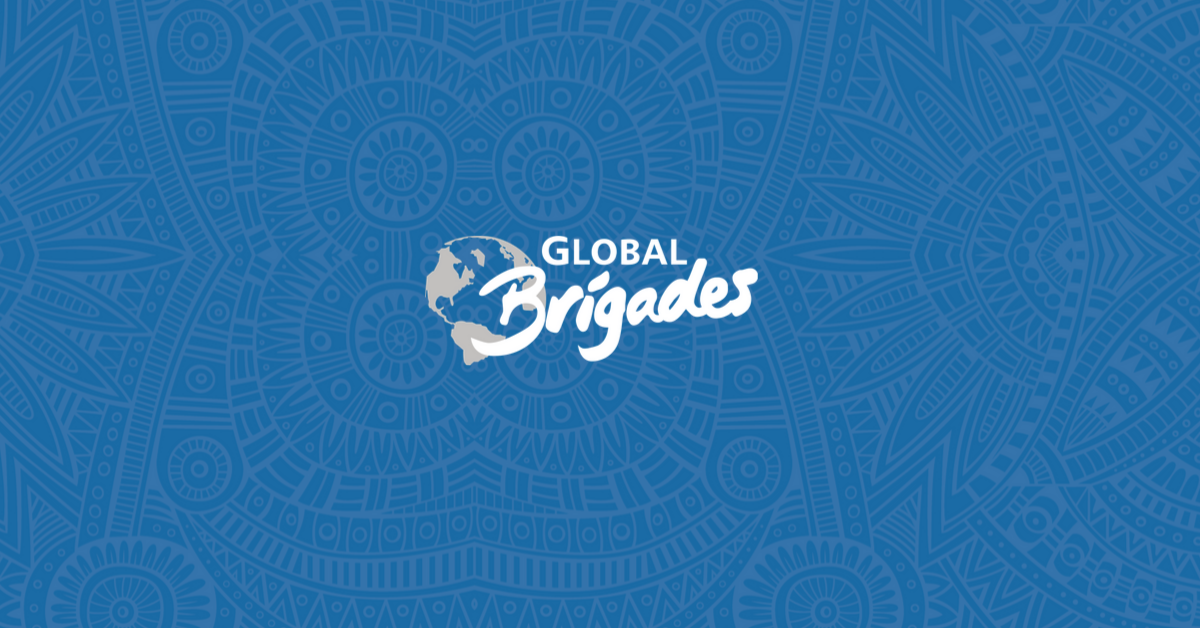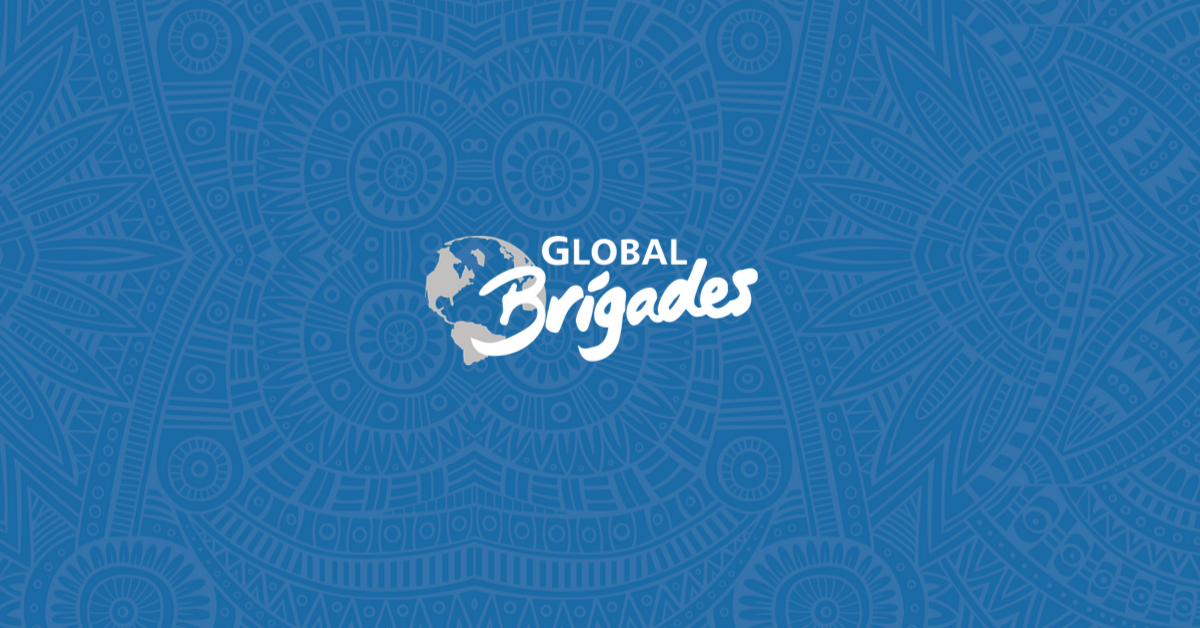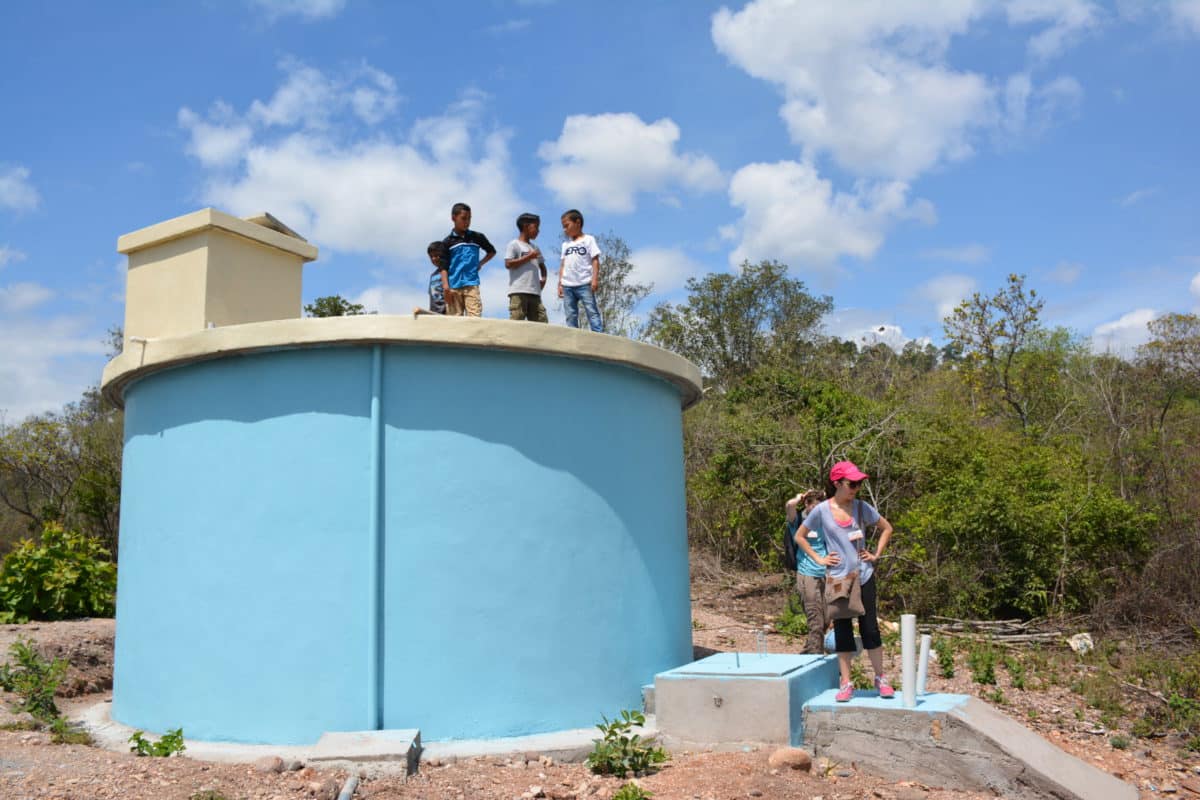Many people think a lot about how they’re supposed to behave when volunteering abroad. As they should! Performative activism is always a risk, especially with the spotlight on issues like social media activism and chasing experiences abroad for clout.
It’s just as important to think about the right language when interacting with contexts and cultures that may be unfamiliar to you. How to use empowering language in international volunteering is about more than finding the right words to use.
It’s about using language that empowers rather than demeans or diminishes them and challenging norms about a volunteer’s place abroad.
At Global Medical Brigades, our focus is on working alongside partner communities to support sustainable development and help improve access to healthcare. As the largest student-led movement for global health, we know our actions and our words wouldn’t be as meaningful without that high level of collaboration.
The Problem with Traditional Volunteering Expressions
Common language used when talking about international volunteer work has a tendency to perpetuate harmful stereotypes, even when intentions may come from a good place.
It’s language that disempowers and reinforces power imbalances that are already an issue with international volunteering. Any language that creates an “us vs. them” mentality implies a separation between volunteers and the communities they aim to support.
At its worst, it perpetuates issues like white savorism — the idea that privileged, (often) white people provide aid to those they deem disadvantaged for self-serving motives.
Inversely, empowering language emphasizes equality, mutual understanding, and partnership. It’s about creating opportunities for sustainable collaboration with communities, rather than presenting your actions in a way that suggests “saving.”
While it’s common for this to happen during international volunteering efforts, it’s also possible to use divisive language about other people when volunteering locally. A group of people living a few miles from you may have a vastly different culture and worldview than your own. Speaking derogatively about or toward them undermines any benefit a partnership with you may otherwise provide.
Words to Avoid When Volunteering Internationally
Navigating the right language to use in international volunteering or even voluntourism experiences can be challenging. Sometimes, it’s not immediately clear why some words are problematic or insensitive.
The list below is a good starting point for words that create a sense of division, even when used inadvertently:
- Locals: Using the word “locals” or even “local community” reinforces the idea of separation between partner communities and volunteers.
- Foreigners: Much like “locals,” the word “foreigners” suggests an otherness and distancing from partner communities and different cultures.
- Serve: When one group is described as “served” by another, that diminishes the shared effort behind most successful international volunteer experiences.
- Abroad: While it’s not inherently bad to describe international travel as going “abroad,” it’s more inclusive to specify the country when volunteering internationally.
- Mission: Missions or mission trips are generally specific to religious or political endeavors. Otherwise, the phrasing suggests a one-sided initiative. In general, it is frequently an ethnocentric approach to volunteering-based travel to believe you must “save” or “convert” people from what may be a typical expression in their own community.
- Fix/Rectify/Heal/Save: This kind of language suggests a need for volunteers to correct or improve a community, rather than strive for a collaborative effort. The goal should not be for communities to need “fixing” by the ‘more privileged party;’ it should be to use volunteer opportunities as a way to empower communities to support themselves. Volunteers should approach the experience with a posture to learn, not fix.
- Developing World: It’s always best to just be specific with country names rather than coming off as patronizing or suggesting a hierarchy. Use of this phrase or others like “third-world country” can lead to an us vs. them mentality.
- Helpless/Needy: Avoid patronizing language that suggests members of any partner community are in some way desperate for your help. Focus on areas of resilience or areas of collaboration instead.
- Primitive: Avoid any suggestion that indigenous practices are less than or exotic. It diminishes the value of cultural traditions and contributes to ethnocentric thinking (suggesting that anything unlike one’s own culture is somehow beneath another’s).
- Underprivileged: Words like this can come off as condescending and likely ignore the reasons why economic disparities exist in the first place.
In general, ask yourself the question, “Does the way I’m speaking empower and uplift the subject of my words, or does it create a division between us in some way?” If the answer is not ‘empower and uplift,’ adjust your words.
Use This Empowering Language Instead
A shift in language is beneficial for everyone involved. It promotes a more inclusive, respectful, and holistic approach to international volunteering.
It lays the groundwork for a more positive impact and showcases cultural competency. It enhances your impact on positive change as an international volunteer.
You can start by referring to communities by their specific name, identity, or country of geographical origin rather than words that suggest an “other,” such as “locals” or “foreigners.”
Here are a few more examples of empowering new language to add to your vocabulary:
- Partner/Partnership: The most successful volunteer efforts abroad are where a sense of equity exists. Words like this highlight that idea.
- Collaborators: This kind of language highlights the shared effort and contributions of both volunteers and community members.
- Equal stakeholders: International volunteerism should stress the importance of equity and equality of all involved.
- Community members: Try to be specific about communities whenever possible to show respect for and awareness of that community.
Ethical Volunteerism Is Empowering Volunteerism
Ethical volunteerism goes beyond what sounds or even feels good in the moment. It’s about analyzing your own motivations to volunteer.
Partner communities should always be the priority, even if the goal is personal growth, starting with how we talk about them. This can start with which organizations you choose to work with and the language they use to describe their own programs.
Some non-profit organizations or NGOs use coded language in their marketing or introductory materials to describe what they hope to achieve with their programs.
Be wary of big promises of changing the world, healing broken communities, or women’s empowerment on a large scale that lacks data and reporting.
Try to gain an understanding of how communities feel about volunteer projects. How involved are they with the volunteer programs? Who decides areas of need, whether teaching English to young people in Nepal or building homes in India?
Is the goal to create systems that allow community members to support those around them, or to perpetuate an ongoing need for American volunteers?
At Global Medical Brigades, learning how to communicate with our partners is a big piece of prep work for our volunteers. Our intent is never to swoop in for short-term wins.
The power of volunteering in this way has a long-term impact on community healthcare. We can’t do that without the full support of our partner communities. It becomes transformative for everyone involved.
Partner with Global Medical Brigades
Global Medical Brigades provides pre-med students the opportunity to partner with the work being done on the ground. On top of the skills development and experience you’ll gain in the field, we work diligently with our volunteers to ensure a true cultural exchange of ideas.
The holistic model we employ aligns with the United Nations Sustainable Development Goals. It’s designed to support communities with limited access to healthcare and empower them with the tools they need to permanently lift out of poverty.
Ready to learn more? Join a Medical Brigade and make a tangible, long-lasting impact in our partner communities.






